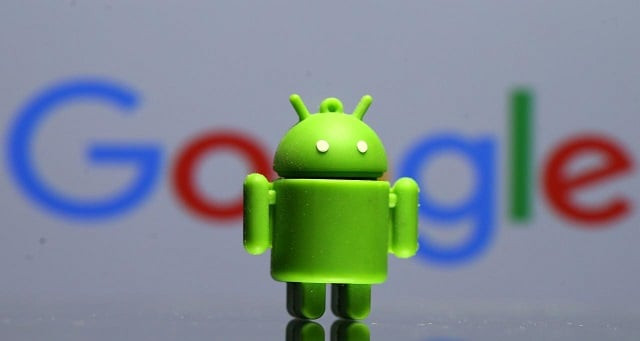'Android uses your location even when you disable tracking'
It gathers and sends data back to Google when the phone is connected to the internet

A 3D printed Android mascot Bugdroid is seen in front of a Google logo in this illustration taken July 9, 2017. PHOTO: REUTERS
A Quartz investigation has revealed that even if an Android user turns off their location by choice, it is still available and traceable.
The software gathers data of the location and sends it back to Google when the phone is connected to the internet.
Microsoft founder Gates commits $100 mln for fund, start-ups, to fight Alzheimer's
“Since the beginning of 2017, Android phones have been collecting the addresses of nearby cellular towers—even when location services are disabled—and sending that data back to Google,” reveals the report by Quartz.
The report further adds that the result of this breach of privacy goes beyond “reasonable consumer expectation of privacy.”
Google has confirmed this practice and has stated that they are trying to end this practice after being contacted by Quartz.
“In January of this year, we began looking into using Cell ID codes as an additional signal to further improve the speed and performance of message delivery,” Google spokesperson said in an email.
Basically, Google's explanation suggests the location tracking was done in order to enhance messaging services.
Although the data sent to Google is encrypted, it could be harmful if third-parties get their hands on it in cases of hacking.
HMD global launches the Nokia 2 in Pakistan
“We never incorporated Cell ID into our network sync system, so that data was immediately discarded, and we updated it to no longer request Cell ID,” Google spokesperson further added.
The location is tracked even if there is no Sim card in the phone.
"When we buy a smartphone, we don't expect it to betray us," said Millie Graham Wood, a solicitor for Privacy International.
Certainly alarming revelations given the significance of privacy in a public world.


















COMMENTS
Comments are moderated and generally will be posted if they are on-topic and not abusive.
For more information, please see our Comments FAQ